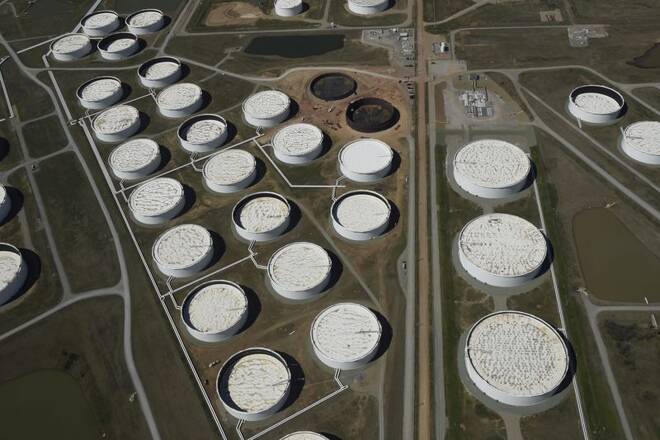Advertisement
Advertisement
Oil edges higher on waning fears of Omicron’s effects
By:
By Yuka Obayashi TOKYO (Reuters) - Oil prices edged lower on Wednesday, reversing gains from earlier the week, as investors tried to assess the full impact of the Omicron coronavirus variant on global fuel demand and the effectiveness of existing vaccines.
By David Gaffen
NEW YORK (Reuters) -Oil prices ended higher in a back-and-forth session on Wednesday, maintaining a positive tone as investors no longer expect the Omicron coronavirus variant to derail global economic growth.
Brent crude futures settled at $75.82, up 38 cents, or 0.5%. U.S. West Texas Intermediate crude ended at $72.36 a barrel, up 31 cents or 0.4%.
Global benchmark Brent has rebounded by about 10% since Dec. 1 on the expectation that Omicron will have only a limited impact on oil demand, after a 16% drop since Nov. 25. Early studies suggest two shots of the Pfizer-BioNTech shot may protect only partially against Omicron, but a third dose may improve that protection.
“Some of those Omicron oil demand-related concerns might have been too pessimistic, and hence with some positive news related to Omicron being released in recent days, oil prices recovered,” said Giovanni Staunovo, commodity analyst at UBS.
The market had a muted reaction to U.S. weekly inventory figures. Crude stocks fell by 240,000 barrels and gasoline and distillate stocks increased as refiners picked up production. At the same time, however, U.S. product supplied by refineries, a proxy for demand, hit 20.9 million barrels per day over the past four weeks – exceeding pre-pandemic rates of consumer use.
The market expects that supply will exceed demand by early 2022, due to rising U.S. production and ongoing supply additions from the Middle East.
Ultimately, the Organization of the Petroleum Exporting Countries and its allies including Russia, known as OPEC+, chose to maintain its schedule of boosting supply by 400,000 bpd every month – despite fears that the new variant would sap demand.
The White House and Tehran have restarted talks over Iran’s nuclear program, but an agreement to revive the 2015 deal that limited Iran’s nuclear development is still far off, and Western officials have voiced dismay at sweeping Iranian demands.
Tensions between Western powers and Russia over Ukraine also remained high after U.S. President Joe Biden warned Russian President Vladimir Putin on Tuesday that the West would impose “strong economic and other measures on Russia if it invades Ukraine, while Putin demanded guarantees that NATO would not expand farther eastward.
“All of these hot spots tells the marketplace we have added risk and when we do, prices go up,” said Tim Snyder, economist at Matador Economics in Dallas.
(Additional reporting by Laura Sanicola and Ron Bousso; editing by David Evans, Marguerita Choy and Lisa Shumaker)
About the Author
Reuterscontributor
Reuters, the news and media division of Thomson Reuters, is the world’s largest international multimedia news provider reaching more than one billion people every day. Reuters provides trusted business, financial, national, and international news to professionals via Thomson Reuters desktops, the world's media organizations, and directly to consumers at Reuters.com and via Reuters TV. Learn more about Thomson Reuters products:
Advertisement
